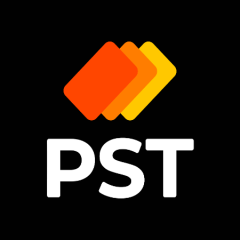-
Posts
18 -
Joined
-
Last visited
-
Days Won
4
Everything posted by PSTnet
-

official PSTNET | VCC For Google Ads, Facebook Ads, TikTok Ads
PSTnet replied to PSTnet's topic in Financial services
Meet new Private with no minimum spend and up to 50% discount 💳 Cashback 3% 💳 Up to 100 free cards each month 💳 Lowest top-up fee 👉 Subscribe to best conditions on the market -

official PSTNET | VCC For Google Ads, Facebook Ads, TikTok Ads
PSTnet replied to PSTnet's topic in Financial services
That's first 6 to 8 digits in the card number, and these digits correspond to the card's payment network, bank and country of issuance, card level etc. For example, VISA cards numbers start with 4, and MasterCard - with 5 BTW we have an article about this in our blog, check it out if you wish to know more about how BINs affect media buying and such: https://blog.pst.net/understanding-the-significance-bin-in-media-buying/ -

official PSTNET | VCC For Google Ads, Facebook Ads, TikTok Ads
PSTnet replied to PSTnet's topic in Financial services
👋 Welcome new members to our Adverisement cards' team: new eight digit BINs 5248**** are now available to all our users! 💳 Currency - USD 💳 Mastercard payment system 💳 Absolutelly new unused BINs 💳 From $1 for a card, from 2% top-up fee * Only for PSTNET users❤️ -

official PSTNET | VCC For Google Ads, Facebook Ads, TikTok Ads
PSTnet replied to PSTnet's topic in Financial services
The Big Short (Withdrawn Limit) And so we increase the comfort level of our users again! The minimum withdrawal amount from a ⭐️PSTNET account is now $300 (instead of $500), which is another step towards the universal payment solution we are striving for. We work further 💪 -

official PSTNET | VCC For Google Ads, Facebook Ads, TikTok Ads
PSTnet replied to PSTnet's topic in Financial services
👋 Meet Cardholder, an advanced Google Chrome extension for making payments with virtual payment cards from PSTNET. One click on the extension button opens the list of cards from your PSTNET account so you can choose one and swiftly copy card details for any purchase. 🤩 Why Cardholder? – Receive 3D-Secure confirmation codes right into your browser – Check the current balance of your virtual payment cards from PSTNET – Insert card details in payment detail fields in just one click (Soon) ⭐️ Join PSTNET users from all over the world and discover a new generation of payment -

official PSTNET | VCC For Google Ads, Facebook Ads, TikTok Ads
PSTnet replied to PSTnet's topic in Financial services
Will the card work after being linked to the account? Will everything not fly into payment risk? What can you find out before buying a card? PST Pulse - an advanced bin checker from PST.NET will help you answer these and other questions! With it, you can check any card: find out the country of issue, bank, and payment system. And for PST cards, even more information is available. Pulse will show the average spend by BIN, decline rate, and billing thresholds for each card. -

official PSTNET | VCC For Google Ads, Facebook Ads, TikTok Ads
PSTnet replied to PSTnet's topic in Financial services
Hey! You can use our cards to pay on any advertising platform as well as in online stores etc. You can use your own credit card if that works for you, yet usually affiliates use more than one card and virtual cards are more convenient for such purposes than ordinary credit card. Again, there is nothing bad in using your own credit card, just practive and find what suits your needs best! 😃 -

official PSTNET | VCC For Google Ads, Facebook Ads, TikTok Ads
PSTnet replied to PSTnet's topic in Financial services
👥 Working as a team? Meet tools for teamwork from PST.NET virtual card payment service! Teamwork capabilities: 📌 Employee management: invitation and suspension, role change 📌 Setting spend limits 📌 Instant transfer of cards and funds between team accounts 📌 Top-up request system 📌 Transaction history for all participants, reports in CSV format Soon: Spend forecast system Soon: Setting allowed merchant categories 👑 To get the Master account status contact our customer care service -

official PSTNET | VCC For Google Ads, Facebook Ads, TikTok Ads
PSTnet replied to PSTnet's topic in Financial services
The best conditions on virtual cards market from PST.NET! Premium cards (Visa Platinum Credit), 3D-Secure support and BIN quality monitoring system will help you easily make foreign purchases and pay for online advertising expenses. We worked hard to provide you with the best conditions on the market – up to 100 free cards for the test, from $1 per card and from 2% top-up commission. Virtual Payment Card Service PST.NET is a best option for teamwork – Master accounts can manage the team structure and the limits for each participant, as well as set up expense categories and download reports. The best offer on the virtual card market is waiting for you! -

official PSTNET | VCC For Google Ads, Facebook Ads, TikTok Ads
PSTnet replied to PSTnet's topic in Financial services
Hey! Here is the link to our promo campaign for affiliate teams: https://pst.net/private There is a form to leave your contact details (Telegram or Skype) and our manager will contact you with more details! -

official PSTNET | VCC For Google Ads, Facebook Ads, TikTok Ads
PSTnet replied to PSTnet's topic in Financial services
PST.NET provides virtual payment cards (VCC) from US and European banks with instant deposit and withdrawal operations, now offers the best conditions on the market (literally). 💳 Up to 100 free cards for media buying teams – for testing 💳 $1 for additional cards – more than 25 BINs from 5 US & EU banks 💳 2% card deposit fee – lowest on the market Visa Platinum Credit cards, 3D-Secure and BIN quality monitoring system from PST.NET will provide unsurpassed level of protection against problems with financial verification on all advertising platforms. Fill out the form to get 100 free cards @Ann_PST_Private -

official PSTNET | VCC For Google Ads, Facebook Ads, TikTok Ads
PSTnet replied to PSTnet's topic in Financial services
Got your own media buying team? Virtual payment card service PST.NET is offering 50 free cards for you and your team! Working solo? Need a card to pay online? PST.NET has a promo for all new clients: get your first card for free with no fee on your first deposit. What is PST.NET? 😎 Exclusive BINs from US banks (20+) 😎 Low fees 😎 Instant deposits and withdrawals with crypto The number of promo cards is limited. -

official PSTNET | VCC For Google Ads, Facebook Ads, TikTok Ads
PSTnet replied to PSTnet's topic in Financial services
Hey! Yes, for such types of purchases our support asks for some refund confirmation (like message from the seller that your purchase was refunded), and you will receive the refund to PST card! -

official PSTNET | VCC For Google Ads, Facebook Ads, TikTok Ads
PSTnet replied to PSTnet's topic in Financial services
Facebook Ads vs Affiliate Marketing. Who is winning? BigTech giants like Meta, Google and TikTok collect huge amounts of information not only about their users, but also about those who are engaged in online advertising on their platforms. On the other hand, affiliate marketers are constantly discovering new ways to bypass compliance on the advertising platforms. The question arises, how affiliate marketers are able to continue their traffic activities, despite the capabilities of those corporations? Experienced media buyers know that in order to pass verifications on main ad platforms, they need to carefully monitor their equipment, network connections and financial instruments. This is affiliate marketing checklist for the 2022/2023 season from PST.NET. I. Account In order to provide profitable and stable work on advertising platforms users should consistently demonstrate that they are real people, not bots or fake multi accounts. In other words, fresh profiles require special actions to normalize behavioral factors. Although no one can say for sure, many people think that there is a necessity of posting and adding as many friends as possible to simulate the actions of a real person. However, it's hard to argue with the fact that most of the users mostly consume content, not create it. Let's think about the logic of advertising verifications with the example of Facebook. Obviously, the social network collects tons of private information from multiple devices. Experts claim Facebook is not interested only in a few personal details such as biological parameters of a user (weight, height, etc.), mother's maiden name, as well as a birthplace and state of health. First of all, the corporation is interested in financial data of its clients. By consuming miscellaneous content, users help Facebook to understand what they like and what they are ready to pay for. Corporation developed an AI for handling all the information received from accounts, discovering patterns and making decisions based on a graph theory. Facebook pays special attention to the structure of user's “contact tree". Most likely, the phones linked to a new accounts might already be contained in database. Facebook gets that data directly from the users’ devices, when people allow access to their phone contacts for handy search of friends. In addition Facebook is able to detect more complex connections, for example, connection between people who are using the same Wi-Fi network, or are in the same location simultaneously. Users with empty “contact tree” looks very suspicious for Facebook Ads. Despite the actual value of various FB verification metrics remains unknown, it seems that boost of behavioral factors is only a preparatory stage on Facebook Ads. II. Hardware & Software Verification systems can track multiple software & hardware characteristics, so affiliate marketers should be very careful about their equipment. Let's use one example from real life to explain this part. It is known that the most common surname in the world is Lee, and the most popular name is Mohammed, while the number of people called Mohammed Lee is not that big. The same is true with software and hardware specifications. Affiliate marketers should not chase a combination consisting of the most popular browsers, operating systems or computer builds. Artificial intelligence knows that cases when the most famous hardware and software parameters combined simultaneously are not as common. In order to attract less attention from verification algorithms, affiliate marketers often mask themselves as Apple users, because there are considerably less models of Apple computers than the number of Windows-based variations, so it will be easier to blend in with other users. III. Network One of critical tools that provides network security and stable process of media buying are proxies, which can be divided into three categories: Datacenter Proxy The cheapest and most affordable type of proxy, which has a serious drawback – everyone can see that the traffic comes from the particular data center. This significantly increases the risk of getting blocked on some sites even before the first visit. Datacenter Proxies are not suitable for affiliate marketing as they are immediately detected. Mobile proxies Mobile proxies provide users with cellular IP addresses. They are better suited for running traffic, because there is a chance to hide at the subnetwork level. When people connect to the same cell tower, they may have partially or completely identical IP addresses, but this does not trigger verification mechanisms – because situations with identical IP addresses are common in telecom technologies. The problem with mobile proxies is that when using them, users need to use the smartphones, since using the proxies of a popular mobile operator from a computer will seem fishy – just like in the Mohammed Lee case. Residential proxies Residential proxies are the rarest, most expensive type, but also the safest for affiliate marketing. The principle of network connection of those proxies are similar to Tor Browser – users access the network through a real remote device, with an IP address assigned by a local Internet provider. Nevertheless, such proxies have disadvantages too: from time to time, they can suddenly stop functioning. The reason may be in ordinary shutdowns of the "resident’s" computers. There are also so-called static resident proxies that allow users to save user specific residential IP addresses, but they are even more rare and expensive. IV. Ad Behavior User behavior in advertising accounts is also monitored by Facebook. In order to not get banned, affiliate marketers should not make any sudden changes. Here is a simple example. A media buyer finds a functional business model with a 500% ROI so he is very eager to upscale. He is ready to invest a six-figure budget into an ad campaign, however the system might flag such a big investment as an anomaly. In base case scenario it will label such behavior as fraudulent; most likely the newly registered ad account will be instantly banned. There are several ways for media buyers to keep their ad accounts less suspicious. Media buyers usually start off with their personal Facebook accounts, but that usually leads to restrictions. The next step often becomes purchasing accounts online (brutes and logs). Affiliate marketers often try to warm up their ad accounts to make it more trust-worthy. They are running traffic on their Fan Pages (innocent posts or pictures). On average they spend around $10-$100 on this process. Successful warming up of Fan Pages can be measured by achieving a billing threshold of $75 inside Facebook Ads Manager account. Warming up the account does not guarantee protection from getting banned, however experienced media buyers are confident this will significantly lower the probability. Subsequently, warmed up Facebook ad accounts guarantee higher spend limits from the start. V. Payments One of the key factors to succeed on advertising platforms is the quality of the payment solutions. The first thing media buyer should factor in when choosing a payment solution (VCC) is the quality of the BIN. You might ask what is a BIN? BIN – Bank Identification Number, it’s the first 6 digits on the card. With this code you can find all the necessary information: type of card (i.e. debit, credit, prepaid, etc), bank, country. This information is crucial to better understand the type of accounts (in terms of geo and quality) affiliate marketer should run your traffic with. It’s a well known fact that cards from tier 1 countries usually perform better because of a higher level of trust from advertising platforms. Platforms use different statistical data to evaluate a BIN. For example, what percentage of unpaid first bills is associated with the given BIN? Or how much aggressive advertising content is related to the particular BIN? The cleaner the BIN, the higher the probability of avoiding risk payments (restrictions due to untrustworthy payment solutions). To avoid restrictions, media buyers have to be careful in choosing their card provider, because overused BINs will most likely get restricted on all major media platforms. Professional payment solution platforms rotate their BINs and also are constantly updating them. Final Thoughts It seems, all gray/black hat activity on the major advertising platforms can be easily stopped by a “press of a button”, because they have all the necessary AI, machine learning and other Big Data capabilities. “Then why isn't this happening?”, – any reasonable person will ask. It's all about the money, as always. Media buyers bring in huge profits to ad services due to willingness to overpay for traffic. Affiliate marketers use multiple accounts and run millions of dollars of traffic per day which significantly increases the price via auction. It is worth stating that as long as media buyers do not cross the “red line” by promoting overly “black hat” ads, advertising platforms will continue to profit on “gray hat” media buyers. Nothing personal, just business. We have been providing a payment solution to affiliate marketing companies worldwide, and here is what we have to say: today it has become quite simple to buy VCCs for media buying, but the question remains about their quality and overuse on a particular platform. Speaking from experience we have found that the only way for payment solutions to overcome the constantly changing algoringfm of media platforms is to have a large quantity of quality BINs from different banks and to constantly monitor their performance. That's the path we have chosen and we feel it will continue to benefit us as a platform and media buyers as clients. PST.NET Analytics Department -

official PSTNET | VCC For Google Ads, Facebook Ads, TikTok Ads
PSTnet replied to PSTnet's topic in Financial services
Don’t be late for your free virtual card! “Test at our expense” promotional campaign by PST.NET is still on! First card at no cost and first deposit without commission (for any amount up to $500) are available for all new users. The number of cards is limited, so do not miss the opportunity to be one of 1000 users to get it! -

official PSTNET | VCC For Google Ads, Facebook Ads, TikTok Ads
PSTnet replied to PSTnet's topic in Financial services
Need a free card with trusted BIN? PST.NET, virtual payment card service, promotional campaign «Test at our expense»: 🤑 $0 for the first card! 🤑 0% commission on the first deposit! 🤑 No documents required! PST.NET cards are issued by US banks, have exclusive BINs and provide the best protection against risk payment. First card at no cost and first deposit without commission (for any amount up to $500) are available for all new users. Number of free cards is limited (1000), don’t be late for your free VCC! -
Always looking for the highest paying CPA offers? Or maybe you are more into generous RevShare programs? Now you don’t even have to choose with the best offer (CPA + RevShare) on VCC market! We Will Pay You For Honest Thoughts! 🤑 Up to $250 CPA + RevShare for a review 🤑 Up to $50 CPA for a comment 🤑 Unlimited income from our affiliate program How Does It Works? 🖋 Sign up to PST.NET and get your affiliate link 🖋 Write an article or make a video review (you can even make a song) about PST.NET on your website or personal blog and place your affiliate link to get up to $250 flat fee and additional revshare payouts 🖋 Write a meaningful comment on any affiliate related forum, chat or any other media platform to get up to $50 flat fee. You need to have a reputable profile to join our feedback program 💌 Send a link to your opinion to our support chat on pst.net website FAQ 1️⃣ What determines the amount of payout? Our support team will evaluate the style and presentation of the materials, as well as audience size and profile level (i.e. senior forum members will get higher rating than junior members). Don’t worry, we have only good and kind people in our support team. Plus, you can always ask our support team to evaluate your materials before the posting 2️⃣ How will I get my payout? Your rewards will be transferred to the USDT balance in your PST.NET account. You can always withdraw your rewards using crypto or spend it on your VCC needs. Withdrawals are processed automatically 3️⃣ What are the terms of RevShare program? Affiliates will get 50% from referral’s first card issuance cost and 10% from all referral’s services fees 4️⃣ Can I make multiple posts? Sure, there is only one condition for multi-posting: each material should be posted on different media platforms and fit all requirements of the affiliate program 5️⃣ Can I get a bigger payout? We have special offers for key opinion leaders. Drop us a message if your audience size is more than 100k followers 😉 ✅ Start spreading your word to get the most profit from our affiliate program! Visit PST.NET
















